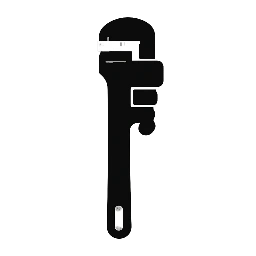If you’re looking to upgrade an existing water fountain with a modern, convenient bottle filling station, the Elkay LZWSRK retrofit bottle filler kit is likely on your radar. This product is a popular choice for schools, offices, and public spaces due to its ease of installation and ability to promote sustainability. But before you make a purchasing decision, it’s essential to understand the total cost and what influences the price of an Elkay LZWSRK retrofit bottle filler kit.
The straightforward answer is that the price of an Elkay LZWSRK retrofit bottle filler kit can vary significantly, typically ranging from around $880 to over $1,600, depending on the supplier and any ongoing promotions. The manufacturer’s suggested retail price (MSRP) is often on the higher end, but you can find this unit for much less from various online plumbing supply stores and specialized distributors. The price difference between different vendors can be substantial, so it’s always a good idea to shop around and compare prices from multiple sources.
What are some common issues with the installation of an Elkay LZWSRK retrofit bottle filler kit?
While the Elkay LZWSRK retrofit bottle filler kit is designed for relatively easy installation on compatible Elkay water coolers, some common issues can arise. One of the most frequent problems is a low water flow rate after installation. This can be caused by several factors, including low water pressure in the building, a clogged strainer screen, or a restricted water filter. It’s also crucial to ensure all connections are properly seated, as a loose push fitting can lead to leaks and reduced water pressure. The installation process for the LZWSRK is often more complex on single-level water coolers than on bi-level units, as it requires re-pressurizing the internal mechanisms. Always refer to the detailed installation manual provided with the kit to avoid these and other potential installation pitfalls.
How do I troubleshoot a low water flow rate after installing an Elkay LZWSRK retrofit bottle filler kit?
If you’ve just installed the kit and are experiencing a low water flow, there are a few things you can check. First, verify that the main water shut-off valve is completely open. A partially closed valve will restrict the flow and result in a weak stream. Next, inspect the strainer screen for any debris that might be blocking the water’s path. If your kit is the filtered model, ensure the new filter is properly seated and not causing a restriction. Sometimes, simply removing and re-installing the filter can resolve the issue. If the problem persists, you may need to check the building’s water pressure to make sure it falls within the recommended range for the unit. In some cases, a defective solenoid valve can be the culprit, preventing the water from flowing freely.
My Elkay LZWSRK retrofit bottle filler kit is showing an error code. What does it mean?
The digital display on an Elkay bottle filler can show a variety of error codes, each indicating a specific problem. For the LZWSRK, these codes are an important diagnostic tool. For example, an E013 error code usually points to a missing or incompatible filter, or an issue with the filter head assembly. An E012 code, on the other hand, indicates an obstruction in the bottle filler area, which might be a simple fix like wiping the sensor clean. Other codes might relate to thermistor or condenser issues. The best course of action is to consult the official Elkay troubleshooting guide or the product manual that came with your unit. If you can’t resolve the issue yourself, it’s best to contact a certified service professional.
Beyond the initial price, what are the long-term costs of owning an Elkay LZWSRK retrofit bottle filler kit?
The initial purchase price is just one part of the equation. There are also long-term ownership costs to consider. The most significant of these is the cost of replacement filters. The Elkay LZWSRK retrofit bottle filler kit comes with a WaterSentry Plus filter, which is rated for 3,000 gallons. The replacement filters, such as the 51300C, are an ongoing expense. While the exact cost varies, a single filter can cost over $100, and multi-packs offer a slight discount. You’ll also need to consider the cost of electricity, as the unit is powered and will draw a small amount of energy. However, the savings from reduced waste and the improved public perception of your facility often outweigh these ongoing expenses.


Leave a Reply